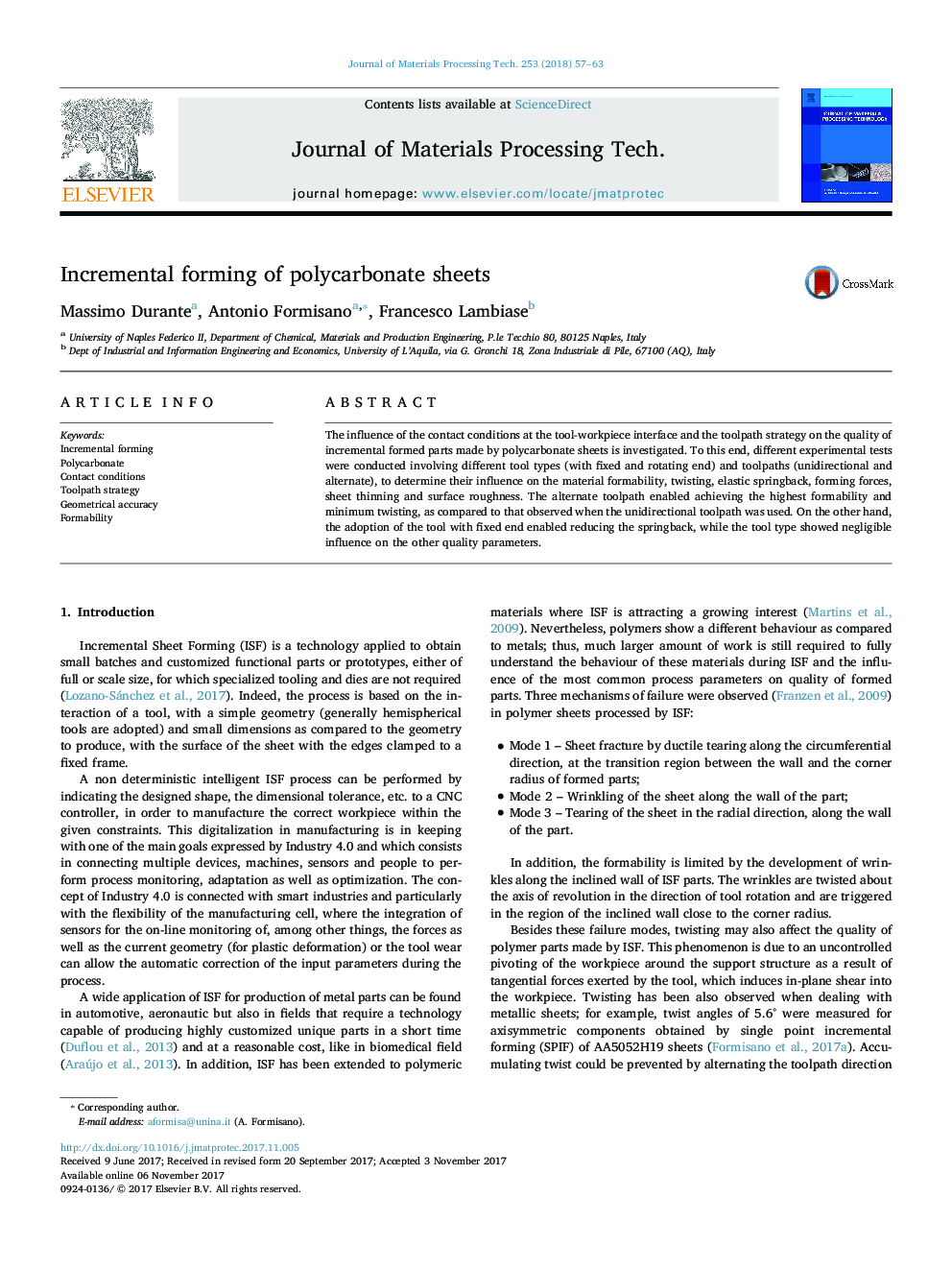| Article ID | Journal | Published Year | Pages | File Type |
|---|---|---|---|---|
| 7176555 | Journal of Materials Processing Technology | 2018 | 7 Pages |
Abstract
The influence of the contact conditions at the tool-workpiece interface and the toolpath strategy on the quality of incremental formed parts made by polycarbonate sheets is investigated. To this end, different experimental tests were conducted involving different tool types (with fixed and rotating end) and toolpaths (unidirectional and alternate), to determine their influence on the material formability, twisting, elastic springback, forming forces, sheet thinning and surface roughness. The alternate toolpath enabled achieving the highest formability and minimum twisting, as compared to that observed when the unidirectional toolpath was used. On the other hand, the adoption of the tool with fixed end enabled reducing the springback, while the tool type showed negligible influence on the other quality parameters.
Related Topics
Physical Sciences and Engineering
Engineering
Industrial and Manufacturing Engineering
Authors
Massimo Durante, Antonio Formisano, Francesco Lambiase,
